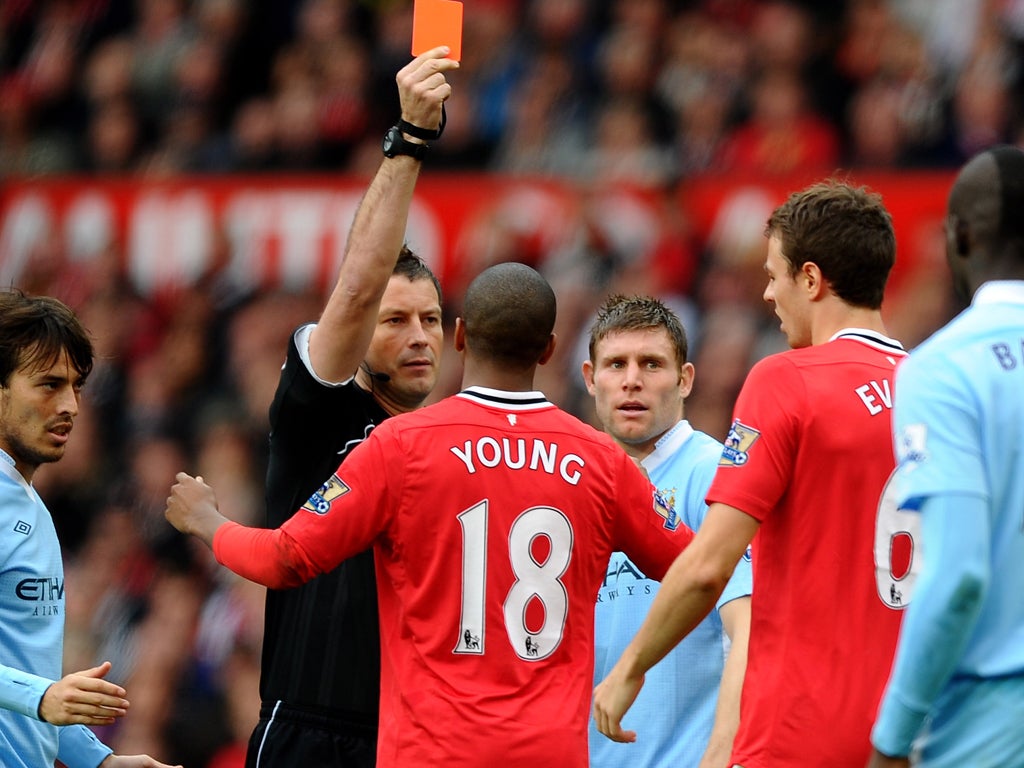Man Utd: still in the red
The Glazers loaded a stonking £437m of debt onto the club. Today's figures show just how mired the club still is

Your support helps us to tell the story
From reproductive rights to climate change to Big Tech, The Independent is on the ground when the story is developing. Whether it's investigating the financials of Elon Musk's pro-Trump PAC or producing our latest documentary, 'The A Word', which shines a light on the American women fighting for reproductive rights, we know how important it is to parse out the facts from the messaging.
At such a critical moment in US history, we need reporters on the ground. Your donation allows us to keep sending journalists to speak to both sides of the story.
The Independent is trusted by Americans across the entire political spectrum. And unlike many other quality news outlets, we choose not to lock Americans out of our reporting and analysis with paywalls. We believe quality journalism should be available to everyone, paid for by those who can afford it.
Your support makes all the difference.So now we know why it was so tough. Manchester United’s attempts to find a market for their shares flotation was as long and winding as a George Best run up the wing.
Last year chief executive David Gill and co were full of how they’d be raising billions of dollars from Asian investors through a mega float on the sleepy Singapore stock exchange. Asian punters were less dozy than they’d hoped. The plans stalled.
Then came another effort – more concerted this time – to float in New York. There was more interest here in a country where the off-side rule is as little known as Manchester’s Arndale centre.
First Man Utd’s bankers tried to sucker investors in at a price of $16 to $20 a share. Even the biggest fans balked at that, especially as the business was being restructured in a way that meant the millionaire Glazer brothers retained all the say in the running of the club.
Eventually the brothers cut the price to $14. That was in August. The shares have pretty much been falling since.
This afternoon, we got a good look under the Red’s bonnet and discovered that, surprise surprise, the sellers of the shares have been right all along.
Revenues fell 3.3% to £320 million in the year to 30 June thanks to its early exit from the Champions League. Pre-tax profits fell 16.5%.
But what’s this? Just as Sir Alex Ferguson’s post-match comments so often seem to differ from the game we all watched on the telly, the club takes a very different view.
Ed Woodward, United's executive vice-chairman, declared: 'We are delighted to announce our first results as a NYSE [New York Stock Exchange] listed company; fiscal 2012 was the best year ever for Manchester United's commercial business.”
He bangs on about its rosy future thanks to its world record shirt sponsorship with Chevrolet and huge revenues from the ludicrous new Premier League TV rights deal in the UK.
But with the lack of silverware from last season, all this talk of “commercial success” can only feel to fans like rubbing their noses in it.
The debt loaded onto the club by the Glazers’ financial restructuring – a huge beef for Man Utd supporters - remains at a stonking £437 million. That’s down only slightly from the £459 million at the start of the financial year and left net finance costs at £49.5 million: a lot of potential players’ wages even by Premier League standards.
Within an hour or so of the results’ release, Man Utd’s stock in New York was trading down a further 44 cents at $12.52.
City types like their cliches as much as football pundits. Here’s one: the share price tells all.
Join our commenting forum
Join thought-provoking conversations, follow other Independent readers and see their replies
Comments